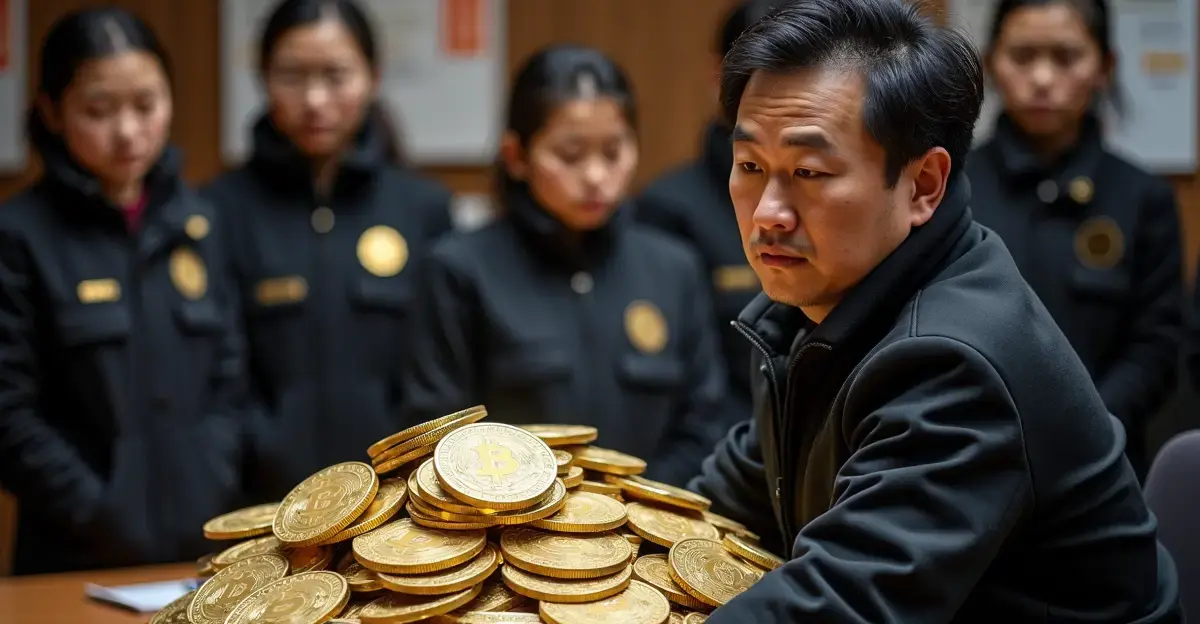Thailand extradites Chinese gambling kingpin She Zhijiang to China after years-long pursuit. The 43-year-old ran a massive criminal empire from Myanmar's Shwe Kokko, operating illegal gambling sites and scam centers that generated billions.

Major Extradition of Fugitive Gambling Magnate
Thailand has successfully extradited She Zhijiang, a notorious Chinese gambling kingpin, to China in a landmark case that highlights growing international cooperation against transnational crime. The 43-year-old businessman, who had been on the run from Chinese authorities for over a decade, was handed over to Chinese officials and arrived in Nanjing on November 12, 2025, according to Chinese state media Xinhua.
Years-Long Pursuit Ends
Chinese authorities had been pursuing She Zhijiang since 2014 when they issued an international arrest warrant through Interpol. 'This extradition represents a significant victory in our ongoing campaign against cross-border gambling operations that target Chinese citizens,' said a spokesperson for China's Ministry of Public Security. The fugitive was finally apprehended in Bangkok in 2022, beginning a three-year legal battle that concluded with Thailand's Appeal Court approving the extradition on November 10, 2025.
Criminal Empire in Southeast Asia
She Zhijiang built a massive criminal enterprise across Southeast Asia, primarily operating from the controversial Shwe Kokko development in Myanmar near the Thai border. His company, Yatai International Holdings Group, allegedly ran 239 illegal gambling websites with total cash flow exceeding 2.775 trillion yuan (approximately $400 million). 'The scale of his operations was staggering - he created an entire city dedicated to criminal activities,' noted a regional security analyst speaking to Reuters.
The United Nations Office on Drugs and Crime had identified She as early as 2014 as having significant influence across multiple sectors in Southeast Asia, including real estate, construction, and entertainment in Cambodia, Myanmar, Thailand, and the Philippines. He held multiple passports, including Chinese, Myanmar, and Cambodian citizenship obtained through investment schemes.
Scam Farms and Human Trafficking
Shwe Kokko, the development She helped create, has become infamous as a hub for online scams, human trafficking, and forced labor. Earlier this year, hundreds of foreign nationals were rescued from so-called scam farms in Myanmar where victims were forced to conduct online fraud under threat of violence. 'We were beaten if we didn't meet our targets and forced to work 18-hour days,' one survivor told investigators.
The United States imposed sanctions on She in September 2025, describing Shwe Kokko as 'a resort city custom-built for gambling, drug trafficking, prostitution and scams targeting people around the world'. The US Treasury Department detailed how criminal gangs lured people under false pretenses, then imprisoned, physically abused, and forced them to work as online scammers.
Diplomatic Timing
The extradition coincides with the first-ever state visit of Thailand's King Maha Vajiralongkorn to China, highlighting the strengthening diplomatic ties between the two nations. 'This extradition demonstrates Thailand's commitment to international law enforcement cooperation,' said a Thai government official who requested anonymity. The timing underscores how law enforcement actions are increasingly intertwined with broader diplomatic relationships in the region.
Legal Challenges and Concerns
She Zhijiang's lawyer described the extradition process as 'unusual' but declined to provide specifics. The defense maintained that their client had done nothing wrong, arguing that his business operations were legitimate urban development projects. However, human rights groups have expressed concerns about due process in China, where similar cases have resulted in severe penalties, including death sentences for 11 members of a notorious Chinese scam family in September 2025.
The case represents a significant development in regional efforts to combat organized crime networks that have flourished in the border regions of Southeast Asia, particularly in areas with limited government control. As one regional security expert noted, 'This extradition sends a clear message that the era of impunity for transnational criminals in Southeast Asia may be coming to an end.'

 Nederlands
Nederlands
 English
English
 Deutsch
Deutsch
 Français
Français
 Español
Español
 Português
Português









